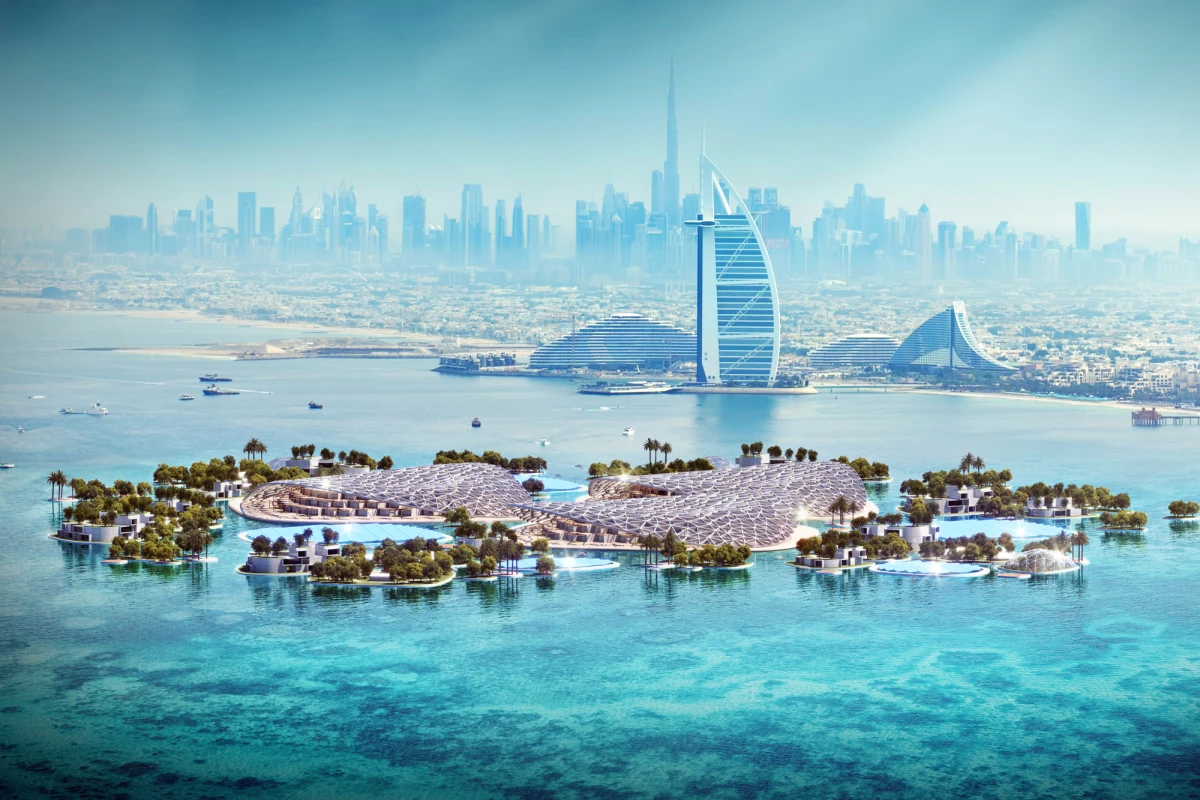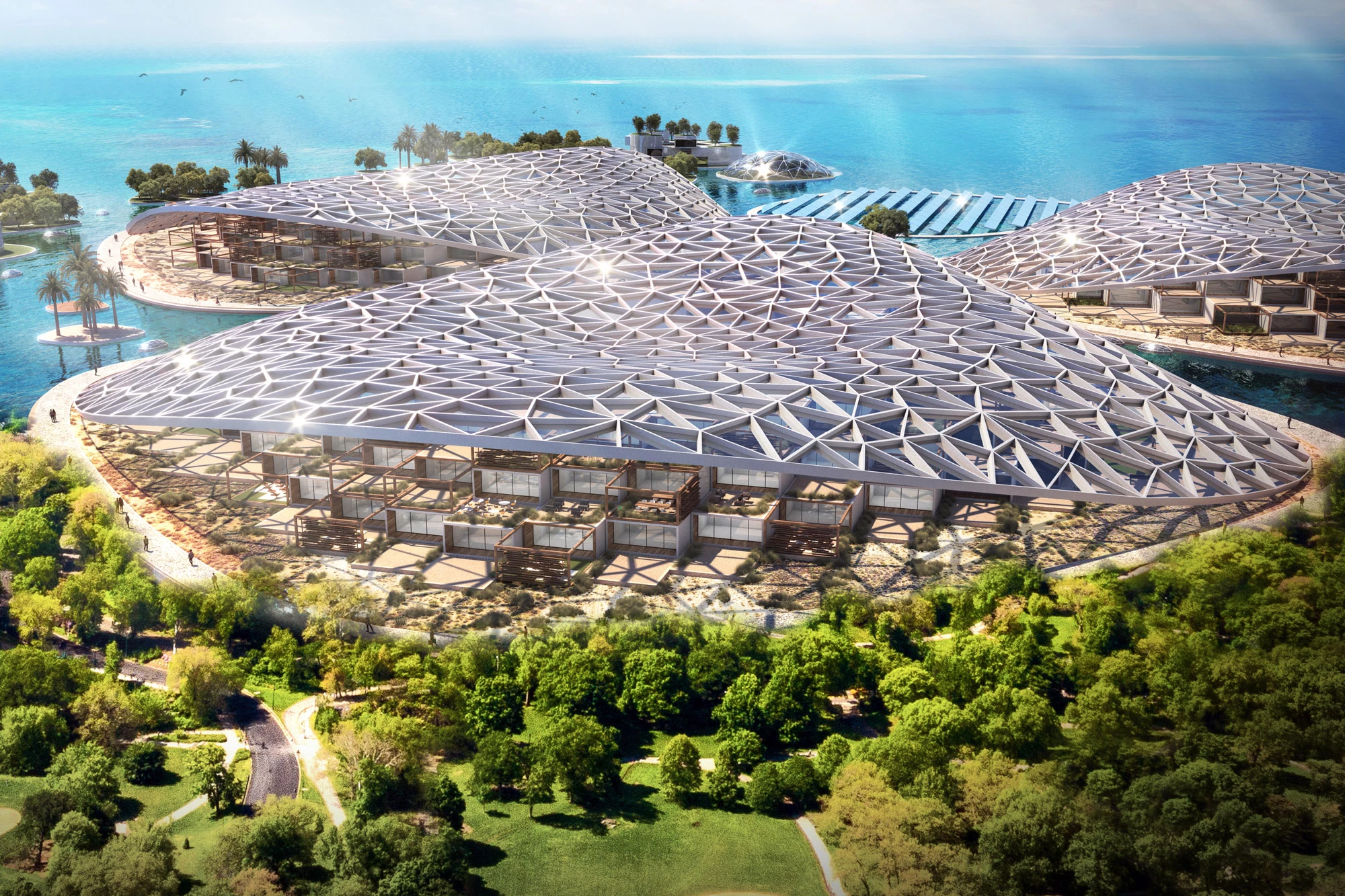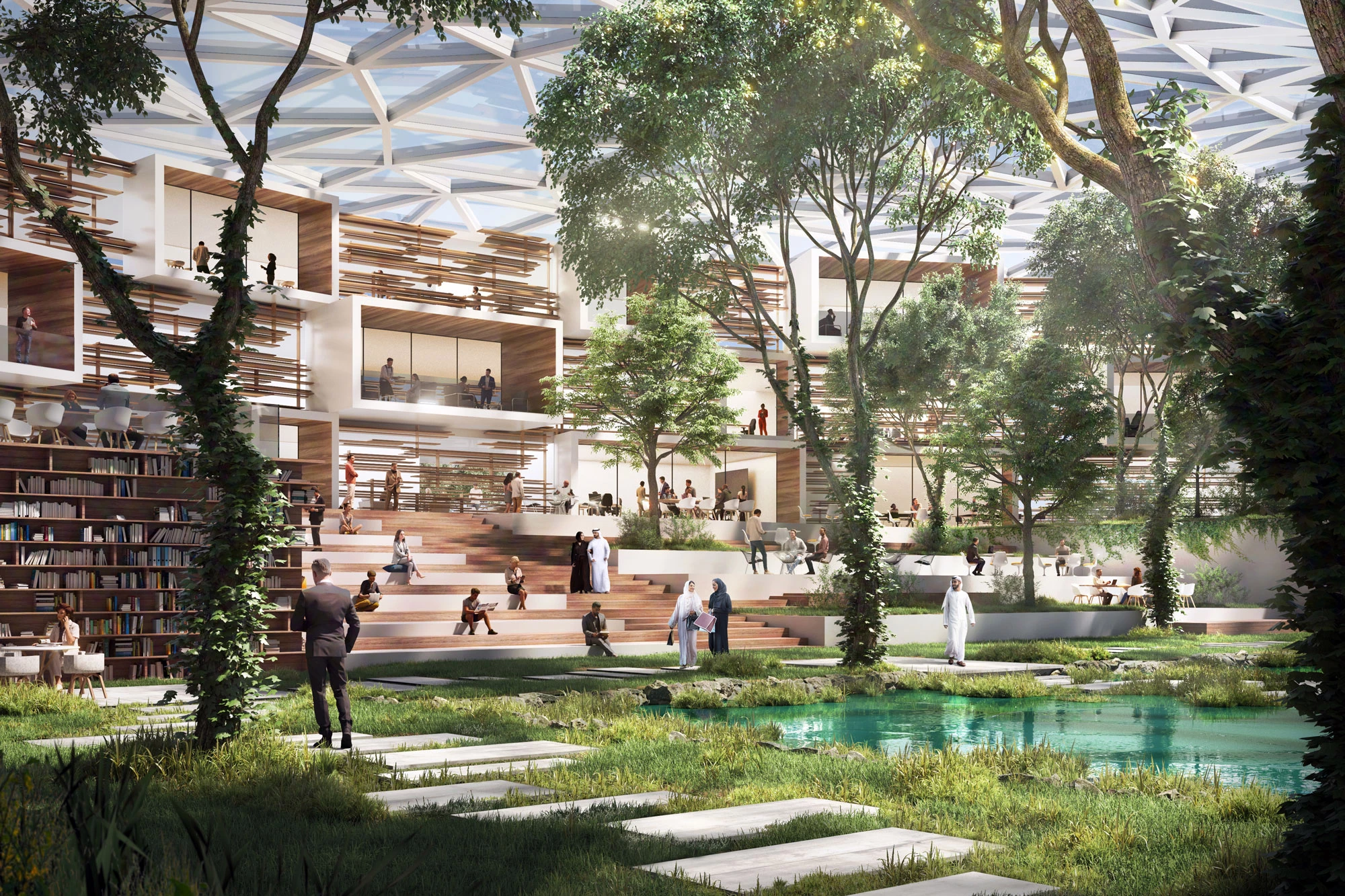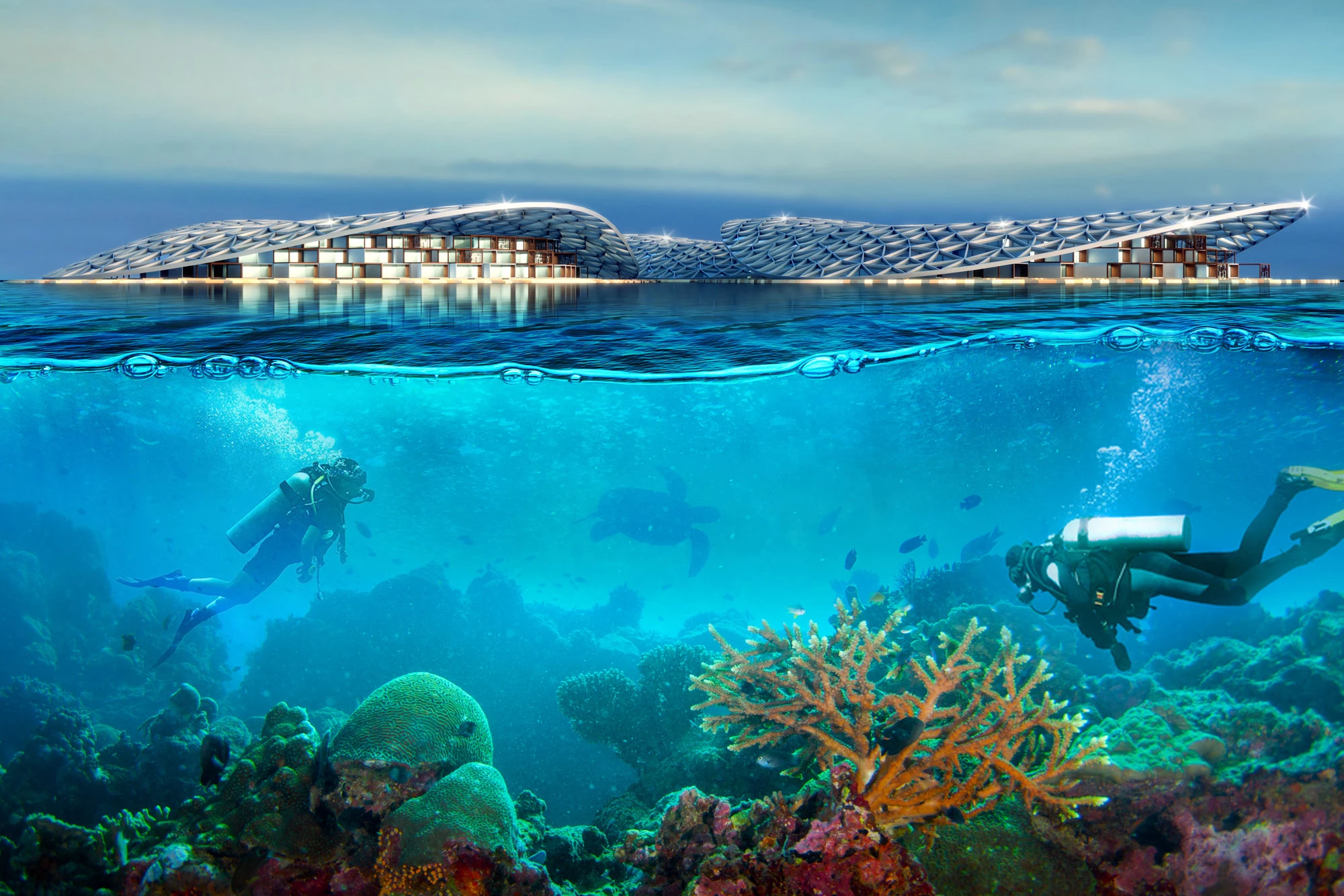URB, a developer of sustainable cities, has unveiled its plans for what is being billed as "the world’s largest ocean restoration project" on the Dubai coast, called Dubai Reefs.
Known for developing smart, net-zero cities that tackle the problems of rising population, urbanization and the effects of climate change, URB has previously been involved in designing and constructing sustainable cities in Yiti, Oman and Yas Island in Abu Dhabi.
Now, URB has its sights set on the Dubai coast with the Dubai Reefs project. Dubai Reefs is a sustainable floating community that will deliver a range of residential, hospitality, retail, educational and research facilities. With Dubai Reefs, URB aims to make Dubai the center of marine research, eco-regeneration, and eco-tourism worldwide.
In developing the Dubai Reefs project, the CEO of URB, Baharash Bagherian, focused on the importance of the ocean for maintaining a healthy environment.
"The health of our cities is intrinsically tied to the health of our oceans," Bagherian said. "The ocean is the source of life, controlling everything. Given that everything on our planet is connected, a healthy ocean is a healthy city. Our ocean will be entirely different by the end of the century if we don’t take action today."
True to Bagherian’s green vision, Dubai Reefs’ accommodations will be run on renewable energy from solar, hydropower, and wave farms. Visitors to the Reefs can engage in unique marine-based eco-tourism experiences in futuristic floating eco-lodges.
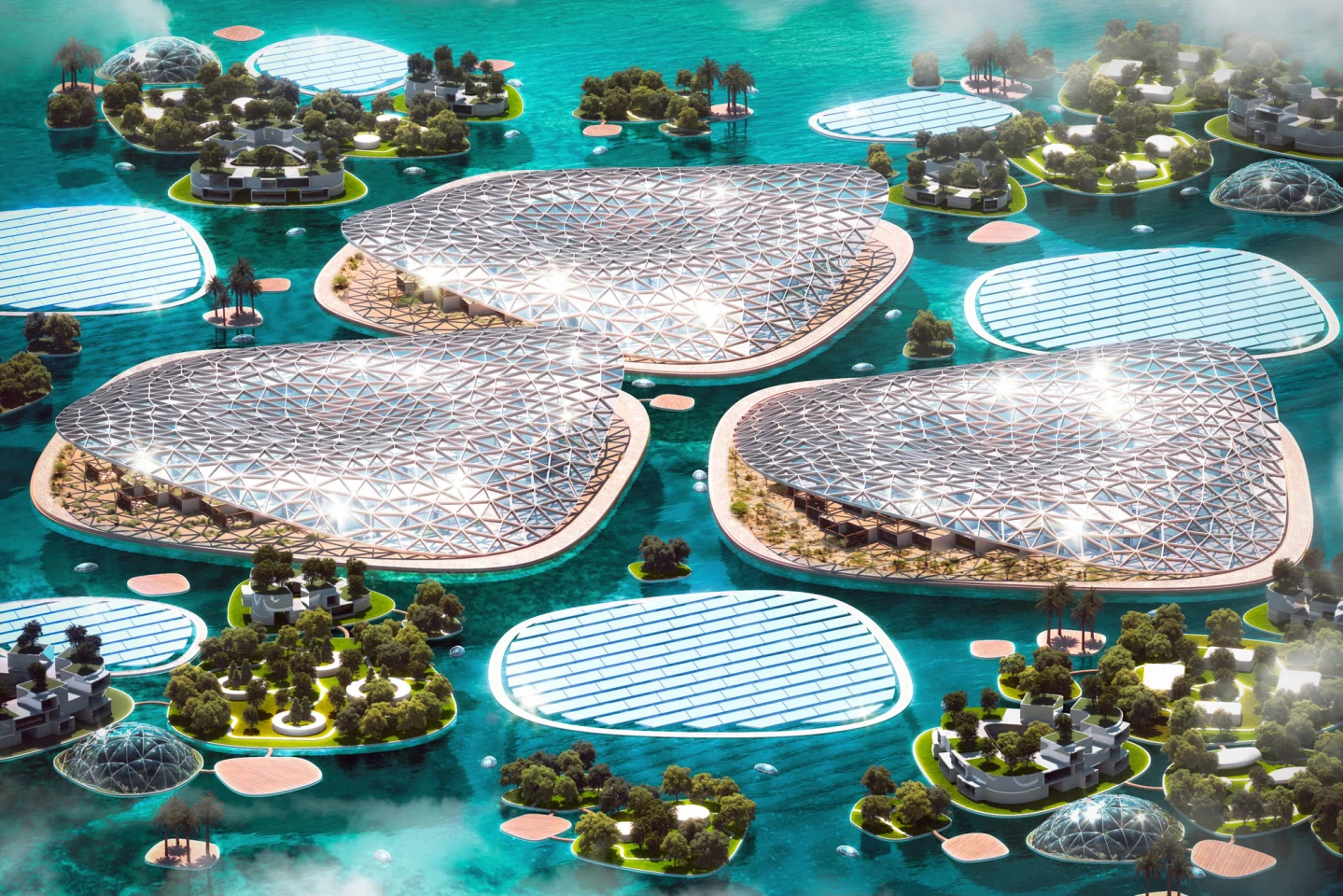
At the heart of the project is a marine institute that aims to protect Dubai’s marine and coastal environment. A 77-square-mile (199-sq-km) artificial reef will create a natural habitat for over one billion corals and 100 million mangrove trees. These coastal ecosystems are intended to sequester and store carbon, offsetting some of the damage caused by oil digging and dredging on Dubai’s coast in past decades.
The institute will be dedicated to education and conservation; it aims to lead a global ocean clean-up initiative to remove plastic debris, ensuring Dubai’s coastal ecosystem acts as a long-term carbon sink. Regenerative ocean farming will provide food security and a greener economy.
In addition to converting Dubai into an enviable eco-destination, Dubai Reefs is expected to generate over 30,000 jobs within the framework of a green economy.
"We need an entrepreneurial spirit in the planning of coastal cities and the types of infrastructure as well as developments that are linked to the ocean," said Bagherian. "As an innovative coastal city, Dubai is best positioned to lead such a transformation. Beyond creating a unique resilient destination for ecotourism and marine research, Dubai Reefs aims to become a blueprint for ocean living, while mitigating the impacts of climate change."
The below video, produced by URB, highlights Dubai Reef’s key social, environmental and economic benefits.
Sources: Mechanical Electrical and Plumbing, URB
